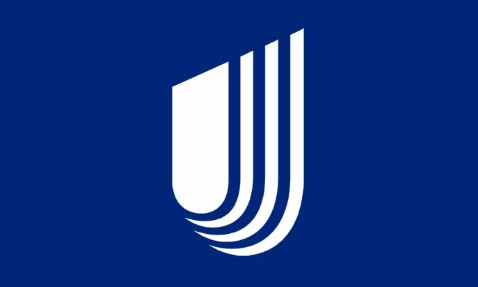Navigating Change At UnitedHealth: The CEO's Crucial Role In Reshaping The Giant

Table of Contents
Leading Through Technological Disruption
The healthcare industry is undergoing a digital revolution, and UnitedHealth is no exception. Successfully navigating this disruption requires strong leadership and a proactive approach to technological advancements.
Embracing Digital Health Innovations
UnitedHealth's CEO must champion the adoption of cutting-edge technologies to enhance efficiency and patient care. This involves a multi-pronged strategy:
- Investment in telehealth infrastructure: Expanding telehealth capabilities allows for remote consultations, monitoring, and care, improving access and reducing costs. This includes investing in secure platforms, training staff, and integrating telehealth into existing workflows.
- Partnerships with digital health startups: Collaborating with innovative companies can bring new technologies and approaches to UnitedHealth, accelerating the adoption of digital health solutions. This requires a robust due diligence process and strategic partnerships.
- Data security protocols: Protecting sensitive patient data is paramount. Robust cybersecurity measures, including encryption, access controls, and regular security audits, are essential.
- Implementation of AI-powered tools for predictive analytics: Utilizing AI and machine learning can improve risk stratification, personalize treatment plans, and optimize resource allocation. This requires careful consideration of ethical implications and data privacy concerns.
Managing the Cybersecurity Risks of Digital Transformation
The increasing reliance on technology exposes UnitedHealth to significant cybersecurity risks. The CEO must prioritize proactive measures:
- Investment in cybersecurity infrastructure: This includes firewalls, intrusion detection systems, and security information and event management (SIEM) tools to detect and prevent cyber threats.
- Employee training on data security best practices: Regular training programs are crucial to educate employees about phishing scams, malware, and other cybersecurity threats.
- Compliance with HIPAA regulations: Adherence to the Health Insurance Portability and Accountability Act (HIPAA) is non-negotiable to ensure patient data privacy and security.
- Proactive threat detection and response strategies: Implementing robust incident response plans is vital to minimize the impact of any successful cyberattacks.
Responding to Evolving Healthcare Regulations
The healthcare industry is heavily regulated, and UnitedHealth must adapt to changing policies and laws. The CEO plays a vital role in navigating this complex landscape.
Adapting to Shifting Healthcare Policy
The CEO must ensure UnitedHealth remains compliant with evolving healthcare laws and regulations. This requires:
- Lobbying efforts to influence policy: Engaging with policymakers to advocate for policies that support the company's objectives and the broader healthcare industry is critical.
- Close monitoring of legislative changes: Staying abreast of legislative developments at the federal and state levels is essential to anticipate and adapt to changes.
- Proactive adaptation of business models to comply with new rules: This may involve adjusting pricing strategies, benefit designs, or operational processes to comply with new regulations.
- Risk management strategies to mitigate regulatory non-compliance: Implementing robust risk management frameworks helps to identify and address potential regulatory compliance issues proactively.
Managing Public Perception and Stakeholder Relations
Maintaining a positive public image and managing stakeholder relations is crucial during periods of regulatory change. The CEO must:
- Transparent communication strategies: Open and honest communication with patients, providers, investors, and the public helps build trust and address concerns.
- Community engagement initiatives: Participating in community events and supporting local health initiatives strengthens relationships and enhances the company's reputation.
- Proactive crisis management plans: Developing and regularly testing crisis management plans ensures that UnitedHealth is prepared to respond effectively to potential reputational damage.
- Investor relations management to address concerns: Maintaining strong relationships with investors is essential to ensuring continued financial stability and support.
Cultivating a Culture of Innovation and Adaptability
To thrive in a dynamic environment, UnitedHealth must cultivate a culture of innovation and adaptability. The CEO's leadership is essential in creating this environment.
Fostering Employee Engagement and Development
Investing in employees is crucial for driving change and fostering innovation. The CEO must:
- Investment in employee training and development programs: Providing employees with the skills and knowledge they need to adapt to change is crucial. This includes upskilling and reskilling initiatives.
- Creation of a culture of continuous learning: Encouraging employees to continuously learn and develop new skills fosters a more adaptable and innovative workforce.
- Empowering employees to contribute innovative ideas: Creating a culture where employees feel comfortable sharing their ideas and contributing to innovation is essential.
- Employee recognition and rewards programs: Recognizing and rewarding employees for their contributions helps to boost morale and engagement.
Building a Strong Leadership Team
A strong leadership team is essential for driving change and fostering collaboration. The CEO must:
- Recruitment and retention of high-performing executives: Attracting and retaining top talent is critical to building a strong leadership team.
- Delegation of responsibilities and empowerment of leaders: Empowering leaders to make decisions and take ownership fosters a more agile and responsive organization.
- Fostering open communication and collaboration among leadership: Open communication and collaboration among leaders are essential to ensure alignment and effective execution of strategies.
- Establishing a clear vision and strategy: A clear vision and strategy provide direction and purpose, helping to guide the organization through change.
Conclusion:
UnitedHealth's continued success hinges on its ability to effectively manage change within the complex healthcare industry. The CEO plays an undeniable pivotal role in this process, leading the charge in technological adoption, regulatory compliance, and fostering a culture of innovation. By proactively addressing these challenges, UnitedHealth’s CEO can ensure the company remains a leader. Effective UnitedHealth change management requires strong leadership, clear communication, and a commitment to adapting to the evolving needs of the industry. Learn more about the challenges and opportunities facing UnitedHealth and how its CEO is leading the company through significant change.

Featured Posts
-
 Competitive Landscape Transformed Wtt Press Conference Announcement
May 22, 2025
Competitive Landscape Transformed Wtt Press Conference Announcement
May 22, 2025 -
 Accident Involving Box Truck Shuts Down Portion Of Route 581
May 22, 2025
Accident Involving Box Truck Shuts Down Portion Of Route 581
May 22, 2025 -
 Alles Over Tikkie Uw Gids Voor Moeiteloos Betalen In Nederland
May 22, 2025
Alles Over Tikkie Uw Gids Voor Moeiteloos Betalen In Nederland
May 22, 2025 -
 Saskatchewans Costco Controversy A Political Panel Perspective
May 22, 2025
Saskatchewans Costco Controversy A Political Panel Perspective
May 22, 2025 -
 Dexter Resurrection Brings Back Beloved Antagonist
May 22, 2025
Dexter Resurrection Brings Back Beloved Antagonist
May 22, 2025
